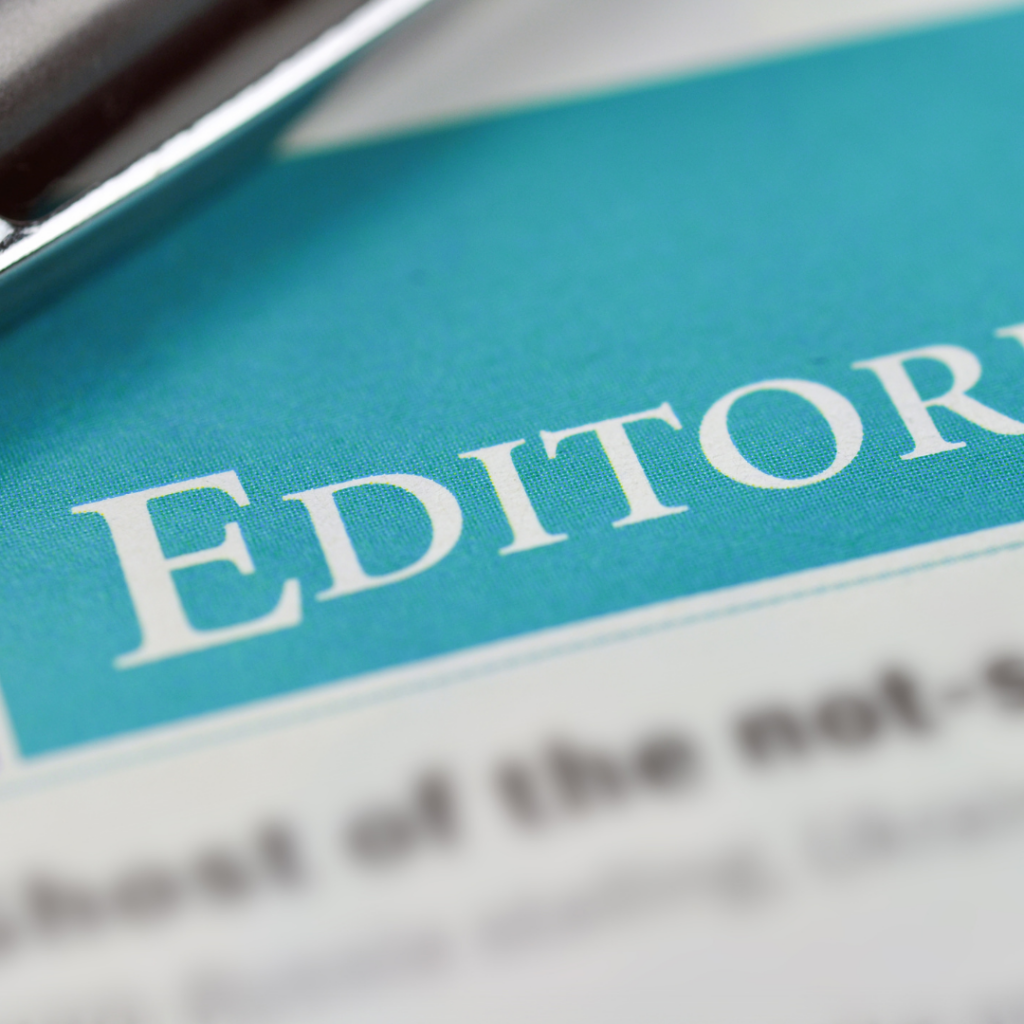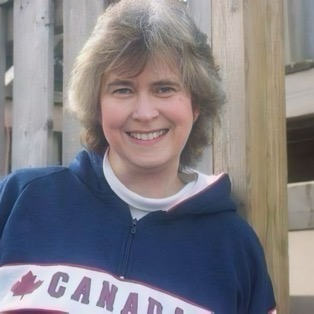This July, we are excited to introduce Kerry Wilson, one of our editors at Tellwell Publishing. With a keen eye for detail and a passion for storytelling, Kerry Wilson plays an important role in refining and perfecting manuscripts, ensuring that each book reaches its full potential.
Read on to get to know Kerry and her role at Tellwell.

Tell us a little bit about yourself.
My name is Kerry Wilson, and I’ve been a professional editor for about twelve years. I live in southwestern Ontario with my husband, and together we have three kids (that includes my awesome son-in-law), a dog, two cats, and multiple birds at my feeders! I was born in Toronto and grew up just north of there, so I am an avid Maple Leafs fan, and can actually say that I was alive the last time they won the cup. I think I was a week or two old!!
I graduated from the University of Western Ontario in 1990 with an honours B.A. in English and History, and from St. Francis Xavier University in 1992 with a B.Ed. that led to qualifications as an Intermediate/Senior English teacher. In 2011, I graduated with an M.Ed., again from Western University. I worked in the education field for twenty-five years as a high school English teacher, a principal, and an educational consultant.

How did you get into professional editing?
When my children were in elementary school, I spent more time with my consulting business than in the classroom so that I could be available to them. I wanted to augment my income, so I investigated opportunities in the publishing industry, hoping to put my English degree, along with my years of teaching and evaluating writing, to work in a new field. I made a “cold contact” with one company and was brought on right away. Over time, I added two more companies, including Tellwell, to my “roster,” and I have never looked back. I love the flexibility and variety of the job, and I get to meet amazing people with fascinating stories to tell. About eight years ago, I decided to make editing my full-time profession.
What are your responsibilities as a Tellwell editor, and what does a typical workday look like for you?
Part of the variety of the job consists of the different types of services we offer. On any given day, I might be reading a new manuscript and writing an evaluation of it, talking to an author on the phone, completing a structural edit, or getting real mechanical and proofing grammar. The manuscript of the day might be a theological treatise, a romance novel, historical fiction, a memoir, or a self-help book, just to name a few. I think the thing I love the most about the job is that I don’t really have a “typical” day. If I’m up at 5:00 a.m., I can start work and finish mid-afternoon, or I might take the day for myself and edit in the evening. And I can edit anywhere! Usually I’m in my home office in southwestern Ontario, but I’ve also edited while overlooking the Atlantic Ocean in South Carolina and the Catalina Mountains in Arizona.
What are the main elements you are looking for when you start a new edit?
Some aspects of my work are pretty “typical,” though. Like, I always start a new edit with a new cup of coffee! Then I glance through the manuscript to get a sense of the writing style, the stylistic strengths, and any formatting issues. I also love reading over the editing questionnaires, as it’s my “first contact” with the author. If it’s a round two edit, then I spend some time “conversing” with the author by reading through their response to my comments and questions. All of this gives me a good sense of the author’s aspirations and expectations, and helps me align the focus of my edit with their needs.
What are some common misconceptions clients have about the editing process, and how do you address those concerns?
Sometimes I do have to address some misconceptions about the editing process, particularly in the self-publishing industry. I see my job as helping authors tell their story in a way that will reach their target audience and have the intended impact. With this in mind, I let them take the lead and often remind them that they have the final say in editorial decisions (unless we’re dealing with serious content concerns, but that’s pretty rare). It can be hard to get your manuscript back and see it seemingly “riddled” with corrections and recommendations, and sometimes authors think those changes are set in stone. But they’re not! With the rare exception, the comments are suggestions, not mandates!
Another misconception I’ve noticed over the years is the idea that all editors are pretty much the same, but in reality, we bring our own preferences and strengths to the table. For example, non-fiction authors often ask me what’s “better,” footnotes or endnotes. I have a colleague who swears by endnotes, but I personally prefer footnotes. Is one right and one wrong? Absolutely not! This is why it’s so important for authors to see themselves as integral parts of the editing process.

What is your best advice for an author preparing to work with an editor for the first time?
With all this in mind, the advice I’d give first-time authors, or authors about to work with an editor for the first time, is to see the editor as a partner, a colleague, and not a literary dictator! I’ve often made content recommendations that the author didn’t accept, and when they shared their reasoning, it totally made sense to me! At the same time, though, there needs to be an element of trust in the process. If your editor is strongly suggesting a revision, give it serious consideration. In my comments to authors, I try to “rank” my recommendations, from “this might just be my preference” to “I believe it’s critical that you reword/rework this section.”
What defines a great editor?
I think a “great editor” is obviously one with a masterful understanding of writing conventions and grammatical soundness, but beyond that, the key is knowing the author’s audience. Ultimately in publishing, we write and edit for our audience, not just for ourselves, so the language used, tone adopted, and material included needs to be appealing and appropriate to the identified target audience. A great editor will tap into that audience and partner with the author to communicate effectively with them.
What are your top three great books on writing?
One of my go-to books on writing is an older one by Carolyn O’Hearn titled Writing, Grammar, and Usage. It’s straightforward and easy to follow, and I used it often in the classroom! But my favourite writing “textbooks,” so to speak, are the books that currently have a wide appeal, so I make a habit of reading bestselling authors. I’m actually heading to the cottage in a few days with some Elin Hilderbrand and Kristin Hannah books. I also want to get into Erik Larson, a writer on history, as I get a lot of history-based manuscripts to edit.
Can you describe a situation where you had to give difficult feedback to an author? How did you handle it?
One of the tougher parts of the job is having to give difficult feedback to an author, particularly when it comes to content concerns. Grammar concerns are pretty easy, as people generally don’t feel too attached to a semi-colon, but when you’re dealing with a memoir, for example, and there needs to be some revisions to the material, it can feel much more personal to the author! I like to bring it back to the audience: How will this impact the reader? Will this be meaningful to your target audience? I’ll talk about different purposes for writing, such as how journalling for one’s own healing and sharing to effect change in society encompass two different goals and therefore should be approached differently. It’s rare that an author isn’t open to these recommendations!
How do you collaborate with other members of the Tellwell team to ensure a cohesive editing process?
I absolutely love working with Tellwell because of the opportunity to collaborate with colleagues and draw on the incredible pool of talent we have in the editing department. We can throw out tough grammatical puzzles to each other for help, and we work as a team to help authors reach their publishing goals. When you publish with Tellwell, you really get the force of a whole editorial department behind you, which I think is unique to this company.
What do you find most rewarding about your role as an editor?
It’s hard to sum up all the benefits and rewarding aspects of being an editor, but I think the thing that brings me the most joy is seeing an author’s dream of being published come to fruition after often years of hard work and possibly doubt. Sometimes the strongest writers are the most unsure of themselves, and it’s always great to see their confidence increase and to hear that they’re working on the next book already!

